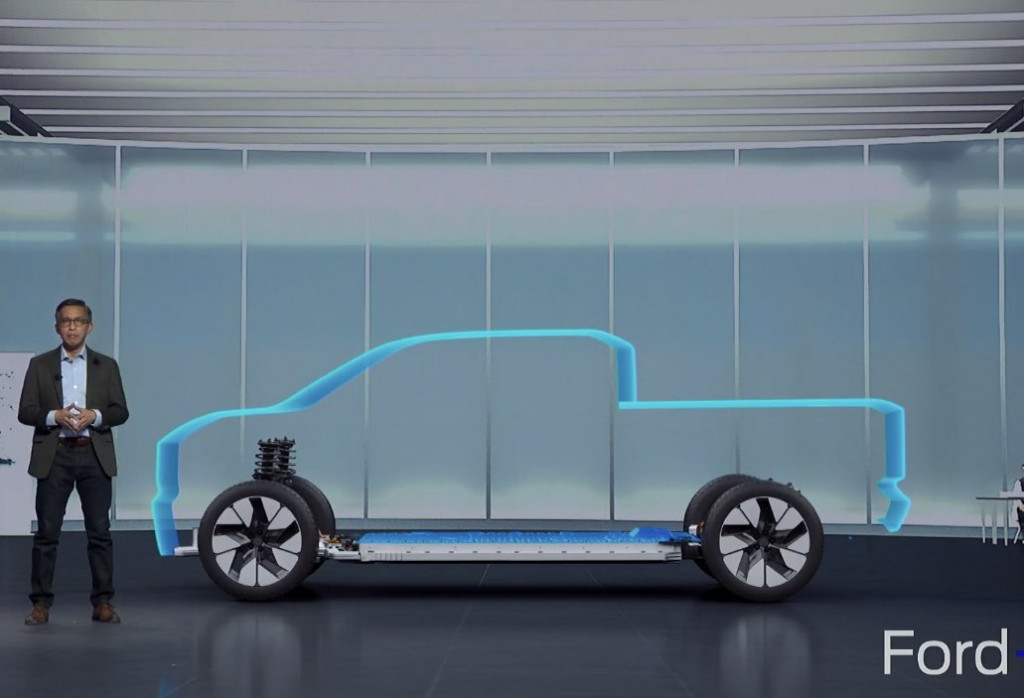- Ford's killing its upcoming three-row electric SUV
- Ford announced two electric pickup trucks that will arrive in 2027
- The automaker said it will shift to hybrid trucks and SUVs as part of its electrification strategy
Growing demand for hybrids and increased price pressure in the electric vehicle segment has led to Ford shifting its electrification plans.
The automaker announced on Wednesday it canceled an electric three-row SUV that was originally promised for launch in 2025 with up to 350 miles of range. It said it already invested $400 million in the project, and that the final cost of its shifted product plan could reach up to $1.5 billion. The automaker also said it was reducing its investment in EVs from a current 40% of annual capital expenditures to 30%.
In place of the electric three-row SUV, Ford said it will focus on a new family of three-row SUVs with hybrid technology. The automaker also hinted at a hybrid option for its next-generation F-Series Super Duty pickup, which the automaker said would offer a range of propulsion options. Ford said hybrid technology makes sense for its biggest vehicles, as battery costs in those segments remain challenging.
The automaker is still committed to EVs and announced a new low-cost EV platform that will underpin multiple vehicles, including in both passenger and commercial segments. The first vehicle on the platform will be a mid-size pickup truck due in 2027.

Electric Ford F-Series outline from Ford Capital Market Day presentation via Mike Levine on Twitter
Also due in 2027 will be Ford's much-hyped successor to the F-150 Lightning. Code-named Project T3, the new electric full-size truck was initially planned for launch in 2025, but Ford on Wednesday said delaying the launch will enable it to take advantage of lower-cost battery options while also providing the market with more time to adapt to EVs. Production will take place in Tennessee, where preparations are already underway.
Also planned is an electric commercial van due in 2026 and planned for production in Ohio.
Ford on Wednesday said it is also taking measures to reduce battery costs. One measure is building cheaper lithium iron phosphate type batteries in the U.S., meaning they'll qualify for for Inflation Reduction Act benefits. Another is moving production of batteries for the Mustang Mach-E from Poland to the U.S. That should make the batteries also qualify Inflation Reduction Act tax credits.
An update on Ford's electrification plans will be provided in the first half of 2025, the automaker said.
